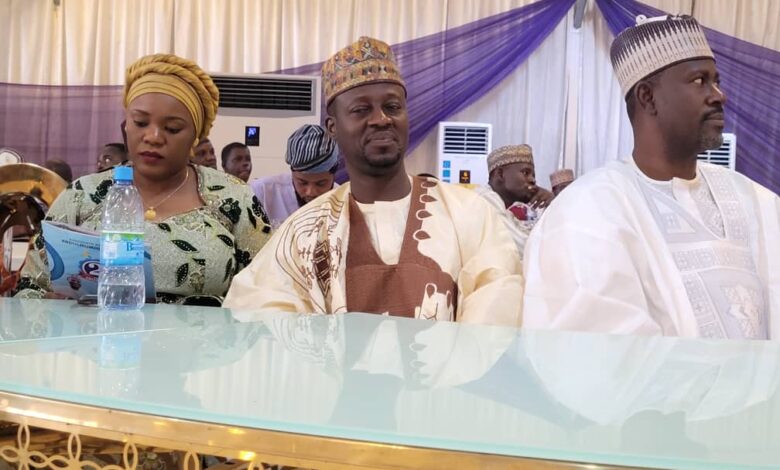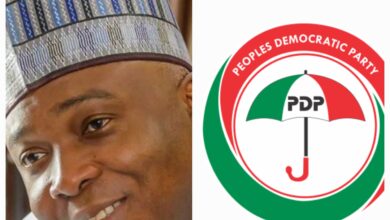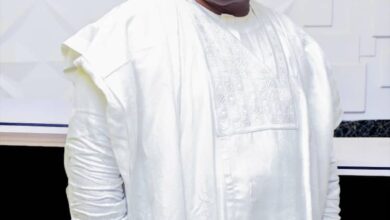Stakeholders Raise Alarm Over Looming Threats of State Capture in Nigeria

By Omowumi Omotosho
Stakeholders from across Nigeria have expressed deep concern over what they described as the looming threat of state capture, warning that it poses a grave danger to the masses’ access to the dividends of democracy.
The alarm was raised at a high-level colloquium held on Sunday at the Paman Events Centre in Ilorin, the Kwara State capital, where participants called for urgent reforms to safeguard Nigeria’s democratic institutions.
Themed “Interrogating the Nigerian State, Its Democratic Institutions, and the Looming Threats of State Capture,” the colloquium brought together lawyers, activists, political leaders, and civil society advocates who decried the erosion of democratic accountability and the growing control of state institutions by a narrow elite.

In his opening address, the convener of the colloquium Associate Professor Abdulmumin Yinka Ajia described the current situation in Nigeria as a quiet assault on the soul of our republic. He warned that democratic institutions have been weakened and politicized beyond recognition, with conflicting judicial rulings, compromised security agencies, and a discredited electoral commission at the center of the crisis.
” Across Nigeria today, we see worrying signs that our democratic project is under seige. Presently, we are witnessing a quiet assault on the soul of our republic: state institutions have been weakened and politicised beyond recognition. Conflicting judgement from the judiciary. Security agencies have been turned into instruments of regime preservation. And the electorate commission’s credibility is in question.
At the centre of this crisis is what scholars now call state capture, a system in which a narrow elite hijacks public institutions, bends policy to private ends, and erects barriers to transparency and reform. This is not how a Democracy is designed to function, this is civilian, authoritarianism, cloaked in constitutional rituals. State institutions that should serve the public interest are increasingly captured, not by military junta, but by civilian cartels of political and economic elites who subvert these institutions for personal gain.
This Colloquium stands in solidarity with all efforts, fornal and informal, aimed at rebuilding the Nigerian State into a truly accountable, inclusive, and citizen-serving republic. We must demand: Independent institutions,free and fair elections, not manipulated rituals. A responsive judiciary, capable of dispensing justice without fear or favour. A vibrant civil society that refuses to be silenced by intimidation or cooptation. And above all, a new civic consciousness, one that sees Democracy not just as a system of government, but as a way of life, rooted in a equity, inclusion, and accountability.
We must: defend judicial independence, protect electorate integrity, reclaim civic spaces, resist the the normalisation of authoritarianism, and most importantly reignite the idea that Democracy belongs to all of us and cannot be appropriate by a selected few,” the convener said.
The Coordinator of the Kwara Redemption Movement, Barrister Iyiola Akogun Oyedepo, in his presentation titled “Elections without Democracy? Party Dominance, Political Godfatherism, and the Hollowing Out of Electoral Institutions,” lamented that political parties in Nigeria suffer from a lack of internal democracy. He warned that elections are increasingly mere rituals manipulated by political godfathers who, in effect, capture and direct the state.
“There is a need to erect new virtues and value in Nigeria. Things are deteriorating, we need a new set of foundation father. The youths should rise. We need new structure and new national purpose,” he said.
A human rights lawyer, Barrister Antonio Osinewe, who spoke on “The Judiciary on Trial: Independence, Partisanship, and the Crisis of Democratic Adjudication in Nigeria,” described the judicial sector as compromised and underfunded. She emphasized that without a truly independent judiciary, the rule of law will remain a mirage and democratic accountability will continue to weaken.
Also, an Advocate for governance, Comrade Solihu Bolakale Bakindo, in his presentation titled “Civil Society and the Resistance to State Capture,” criticized civil society groups for failing to advocate consistently for the rule of law and democratic principles. He opined that the law is supposed to be the foundation of democracy, but today, many are above the law, and civil society itself has lost focus”
The interim national coordinator of the Obidient Movement and representative of Labour Party presidential candidate Peter Obi, Tanko Yunusa, took aim at both state and federal governments and state government for undermining democracy through chronic dishonesty and misallocation of resources.
“Government is no longer working for the people. They allocate most of the national budget to serve themselves, not the masses,” Yunusa said. “Only Kwara State has the capacity to feed Nigeria with its land and intellect. But without credible leadership, nothing changes. I challenge the president or any governor to face Nigerians in an open forum—they won’t dare.”
The stakeholders jointly demanded the restoration of judicial independence, the credibility of electoral processes, and the vibrancy of civil society. They called for a new civic consciousness that treats democracy not merely as a system of governance but as a way of life founded on equity, inclusion, and accountability.





